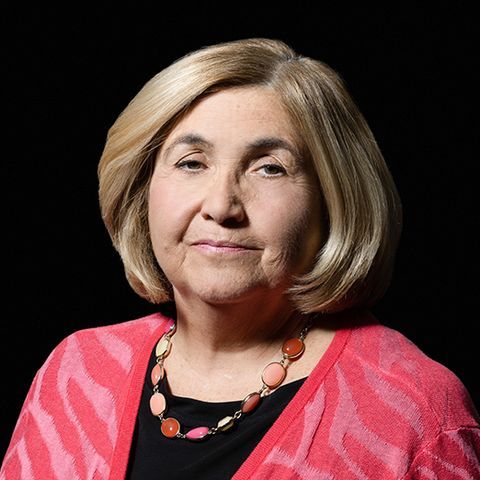Alerts
FinCEN and Federal Banking Agencies Issue Statement on Pooling Resources for BSA Compliance
October 5, 2018
On Oct. 3, 2018, the Board of Governors of the Federal Reserve System, the Federal Deposit Insurance Corporation, the National Credit Union Administration, the Office of the Comptroller of the Currency and the U.S. Department of the Treasury’s Financial Crimes Enforcement Network (collectively, the “Agencies”) issued an interagency statement regarding the sharing of Bank Secrecy Act (“BSA”) resources (“Interagency Statement”).[1] The Interagency Statement is directed at banks, and does not extend to other financial institutions subject to the BSA, such as money services businesses or broker-dealers. For purposes of the Interagency Statement, the term “bank” includes each agent, agency branch or office within the United States of any bank, savings association, credit union or foreign bank (each, a “Bank”).[2]
The Agencies clarified that Banks, particularly those with “a community focus, less complex operations, and lower-risk profiles for money laundering or terrorist financing,” may decide to enter into collaborative arrangements to share resources to manage their BSA and anti-money laundering (“AML”) obligations more efficiently and effectively — although, each Bank that enters into a collaborative arrangement remains individually responsible for ensuring compliance with its obligations under the BSA. Any collaborative arrangement entered into by a Bank must be designed and implemented in accordance with the Bank’s risk profile for money laundering and terrorist financing, subject to oversight by the Bank’s board of directors and periodic evaluation, appropriately documented and supported by a contractual agreement between the participating Banks that sets forth each institution’s rights, responsibilities and procedures for protecting customer data and confidential information.
The Interagency Statement provides the following examples of collaborative arrangements to comply with certain requirements of the BSA:
- With respect to the requirement to have a system of internal controls to assure ongoing compliance with the BSA, Banks may share resources to (1) review, update and draft BSA/AML policies and procedures; (2) review and develop risk-based customer identification and account monitoring processes; and (3) tailor monitoring systems and reports for the risks posed.
- With respect to the requirement to conduct independent testing for compliance, Banks may share resources “in the scoping, planning, and performance of the BSA/AML compliance program independent test” as long as there are “appropriate safeguards in place to ensure the confidentiality of sensitive business information” and the shared resources do not present a conflict of interest or lack of independence.
- With respect to the requirement to conduct training of appropriate personnel in BSA regulatory requirements and in internal BSA/AML policies, procedures and processes, Banks may enter into a collaborative arrangement to hire a qualified instructor to conduct the BSA/AML training.
Conversely, with respect to the requirement to designate an individual or individuals responsible for managing a Bank’s BSA compliance program, the Interagency Statement clarifies that it may not be appropriate for a Bank to enter into a collaborative arrangement to share a BSA officer given the confidential nature of suspicious activity reports filed, the ability of the BSA officer to effectively coordinate and monitor each Bank’s day-to-day BSA/AML compliance and the ability of the BSA officer to communicate candidly with each bank’s board of directors and/or senior management.
In summary, according to the Interagency Statement, Banks may find it beneficial to use collaborative arrangements to manage BSA/AML obligations, but any use of collaborative arrangements by Banks “requires careful consideration regarding the type of collaboration in relation to the bank’s risk profile, adequate documentation, consideration of legal restrictions, and the establishment of appropriate oversight mechanisms; and should be consistent with sound principles of corporate governance.”
Authored by Joseph P. Vitale, Donald J. Mosher, Betty Santangelo and Melissa G.R. Goldstein.
If you have any questions concerning this Alert, please contact your attorney at Schulte Roth & Zabel or one of the authors.
[1] See Interagency Statement on Sharing Bank Secrecy Act Resources (Oct. 3, 2018), available here. The Interagency Statement does not apply to collaborative arrangements formed for the purpose of sharing information under Section 314(b) of the USA PATRIOT Act (“Section 314(b)”) and makes clear that collaborative arrangements formed pursuant to it are not considered associations for purposes of Section 314(b).
[2] See 31 C.F.R. § 1010.100(d).
This communication is issued by Schulte Roth & Zabel LLP for informational purposes only and does not constitute legal advice or establish an attorney-client relationship. In some jurisdictions, this publication may be considered attorney advertising. ©2018 Schulte Roth & Zabel LLP.
All rights reserved. SCHULTE ROTH & ZABEL is the registered trademark of Schulte Roth & Zabel LLP.





